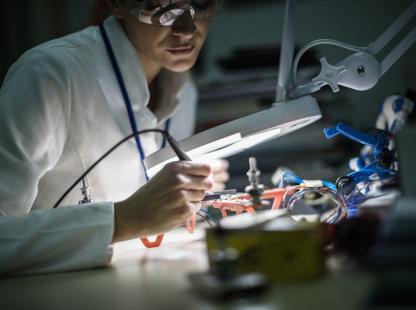NJIT Implementation of Recent Executive Orders

Bioscience and Bioengineering
This research cluster includes multidisciplinary research in the areas of biomedical devices, sensors and instrumentation, brain health & neuroscience, tissue engineering, biological sciences & behavior, molecular biology, evolutionary sciences, and gene therapy and phenotype related research.